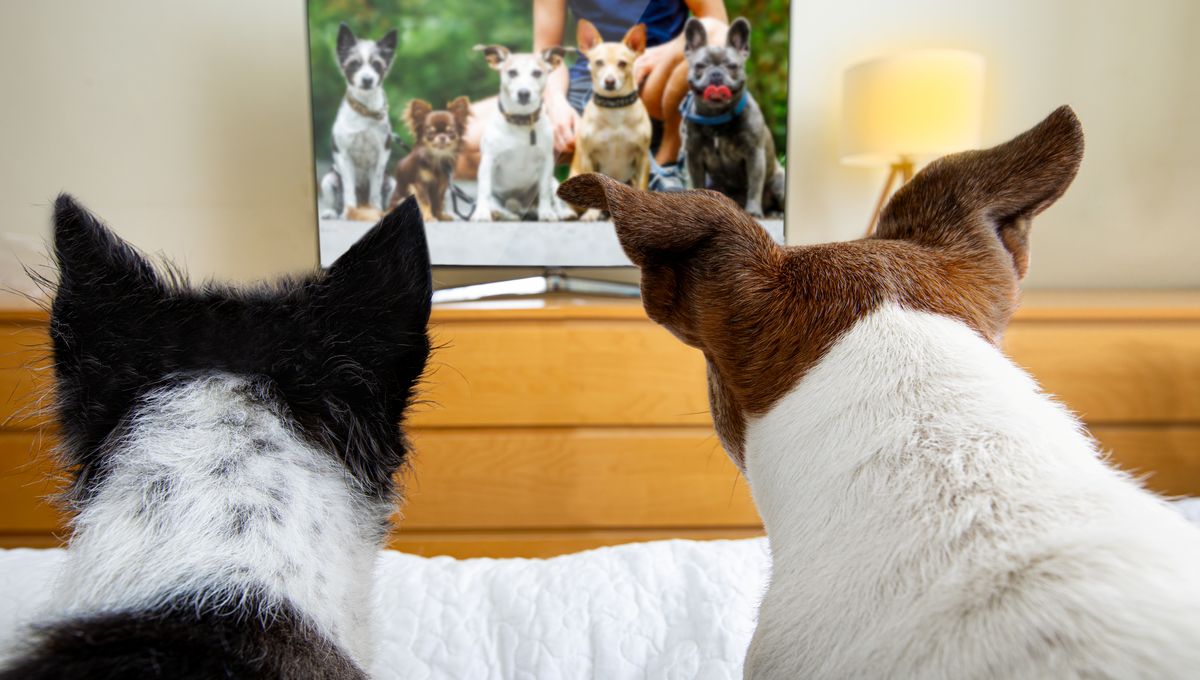
Dog owners who feel guilty about leaving their hound alone during the day, and turn the TV on for company, should match the programming to their best friend’s personality, a new study finds, rather than assuming one size fits all.
If you were going to leave the TV on to keep your dog from boredom while you can’t give them the attention they want, the choice of what to show might seem obvious. Plenty of Bluey, or perhaps reruns of Lassie or Inspector Rex, if you’re not sure that dogs can recognize cartoons. Maybe Must Love Dogs on endless repeat. Alternatively, you could believe the people who say their programs are curated to line up with canine preferences. However, this recent research indicates you should instead pair the shows with how the pooch responds to other stimuli.
To reach this conclusion, researchers at Auburn University created a Dog Television Viewing Scale (DTVS) and distributed it to hundreds of owners, of whom 453 produced data useful for these questions. The data was based on owners watching dogs watching TV for an average of just over 14 minutes. That might not be the best hit rate, but imagine how much worse it would be for a study on cats. The owners also reported their dogs’ breed, personality, and history.
Some owners tried to train their companion animal to watch, while others just left them alone to see if they paid attention to the screen.
Limited previous studies have been done on the topic, such as one that found about 15 percent of fearful dogs responded to TV activity; another reported that a third of dogs sometimes bark at the TV. The paper on this study contains the marvelous line: “To our knowledge, there has been no systematic, peer-reviewed investigation of television viewing habits in dogs.”
Unsurprisingly, dogs were more interested in seeing non-human animals on screen, particularly their own species, than other sorts of stimuli. However, it is hard to find something that satisfies every canine. The authors report that 45 percent of the subjects always responded to dogs barking or howling on screen, but that still leaves a narrow majority that don’t.
Dogs with a fearful temperament responded more strongly to non-animal TV sounds, such as doorbells and car noises. Dogs that their owners described as excitable often appeared to follow items on screen as if they existed in real life, certainly more than calm dogs did.
On the other hand, quite a few things one might have expected to influence dogs’ responses seemed to make no difference. For example, dogs didn’t appear to respond differently to visuals or sound on the TV. Maybe smell is the key. Watching a lot of TV didn’t seem to dull dogs’ responses either, as one might have expected. No pattern was observed in terms of age, breed, or sex producing stronger or more frequent reactions, although insufficient sample sizes for most breeds may have contributed to this.
The study is published in Scientific Reports.
Source Link: Your Dog’s TV Preferences Might Reveal Their Personality